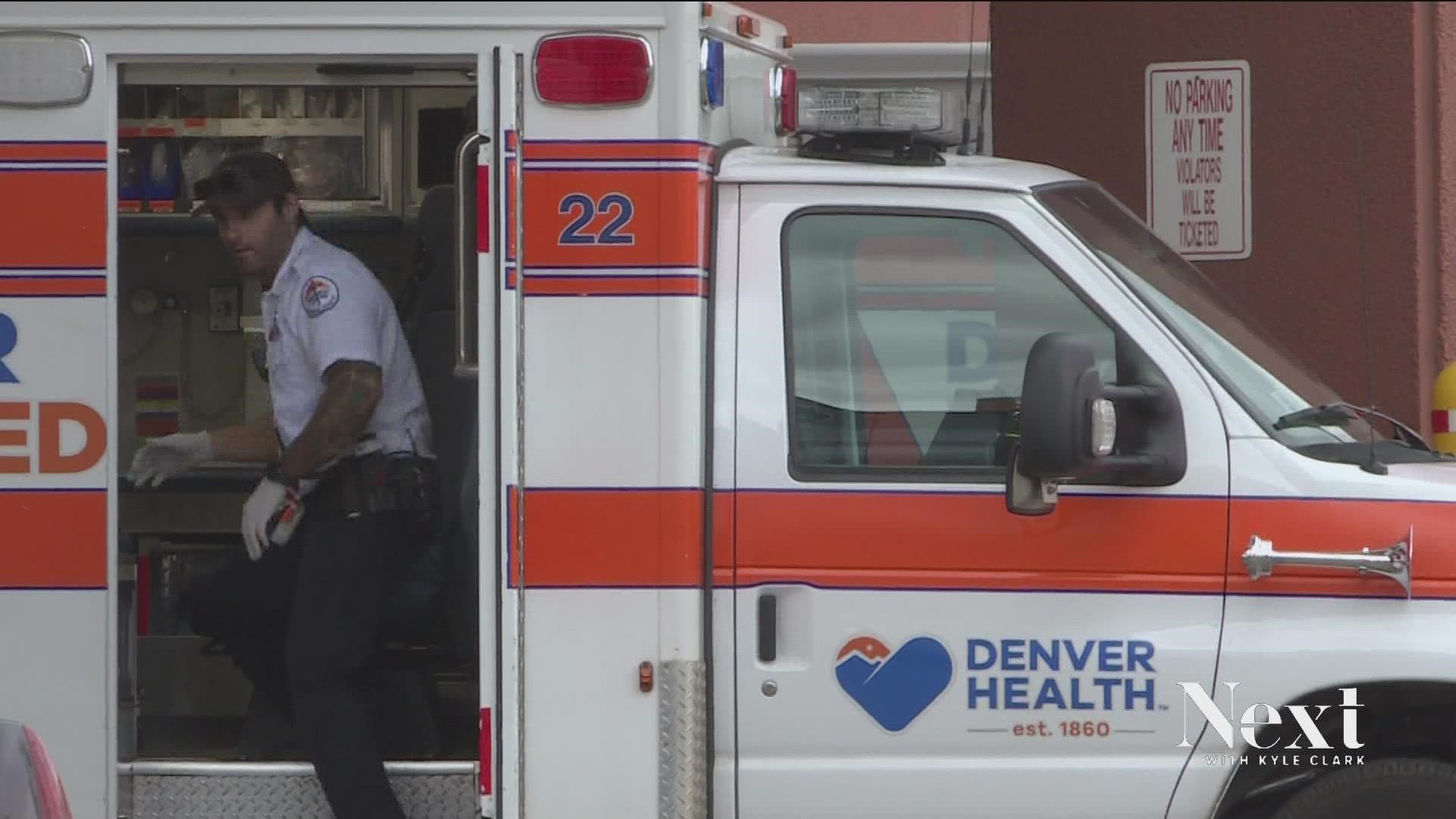DENVER — Hospitals across the country, and here in Colorado, face tight budgets and making tough decisions.
In the 160 years it's been open, the people at Denver Health have seen ups and downs. The financial issues they are facing now are tied to unprecedented times.
"[It's] still recovering from the pandemic," Dr. Connie Price with Denver Health said of the hospital. "[There are] other external forces in play that weren't necessarily present in the past. The biggest is the cost of staffing."
Denver Health serves a large patient population that is underinsured, or have no insurance, and patients with access to more resources.
Their "days cash on hand trend," is on the decline. Right now their rainy day fund would last 86 days. The hospital would like it to be at least 117 days and said the average hospital has around 200 days of cash on hand.
The hospital is still bringing in money but is outspending what they are bringing in.
"We've always made it through," Price said. "Our number one priority is to keep our beds and hospital and clinics open for patients who need our care."
On average the hospital been $3-3.5 million over budget a month to pay for contract health care workers. That upward trend started in March of this year.
Like many other hospitals, Denver Health has faced a staffing shortage and in return relied on contract employees to help keep the hospital running.
'It's in short supply and when they do exist they are extraordinarily expensive," Price said.
Federal aid that helped to cover this cost ended in 2022.
Between the budget, staffing shortages and making sure patient care quality is maintained, the hospital started making some tough decisions.
"We had to close some of our beds in our hospital, because we don't have the staff to be able to take care of the patients in the way we would like too," Price said. She said that decision was made to maintain the quality of care for their patients admitted.
Starting Aug. 10, Denver Health temporarily closed 21 beds and have intermittently made that kind of call over the last few months. When patients show up and the hospital is out of space, a pandemic familiarity strikes. The patients are sent to other hospitals.
Price said they are in regular communication with paramedics and ambulances to let them know if they are at capacity and if they need to find another hospital to get the patient help in a timely manner.
The goal is to get the patient to the closest available appropriate bed for care in the Denver area, but that sometimes they have to go further out depending on availability.
"There is space, but sometimes they get crowded too and overwhelmed as well," Price said.
Denver Health is by no means alone. The Colorado Hospital Association said national trends are playing out in Colorado and that more than half of all hospitals could operate in the red this year. That's the optimistic projection.
The association also said hospitals in Colorado saw losses of more then $300 million in the first half of this year, after years of strong margins.
CHA also shared via e-mail:
We are concerned about access to care for patients. Before a hospital would be forced to close, they would take every step available to address those budget challenges. But that could take the shape of having to pause or close departments or service lines, closing select locations (e.g., clinics or other community-based locations), limiting hours for some services, etc.
Denver Health is working on saving money outside of the clinic setting and working to increase revenue on the clinic side as well.
SUGGESTED VIDEOS:

